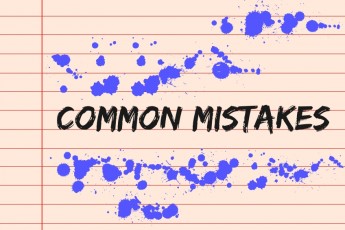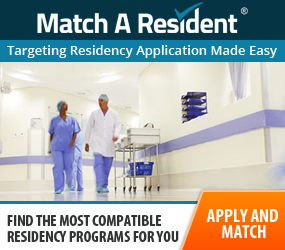Your Medical Residency Personal Statement is your opportunity to stand out from the crowd and impress Program Directors. It offers a chance to highlight your strengths and the reasons you are interested in the specialty. The Medical Residency Personal Statement can also be used to explain any “red flags” in your application, like interruptions in your course of study, low Step Scores, or extended time since graduation.
To take full advantage of this 1-page opportunity, there are some common mistakes you’ll want to avoid.
Common Mistakes to Avoid in your Medical Residency Personal Statement
To help you avoid common pitfalls and craft a compelling personal statement, here are two key mistakes to steer clear of:
Don’t focus entirely on your personal background.
Your personal statement should indeed be personal. But, it is not intended to be a space that tells long stories about your childhood, relationships/marriage, or high school/undergraduate experiences. Keep references to these concepts short and concise. Always tie them back to a point that’s relevant to your application.
Avoid telling patient stories where you were more of an observer than an active participant.
Including a patient story in your Personal Statement is a great idea—if you played an active role in the story. Sharing stories where you were only an observer won’t carry much weight at all and should be avoided. If you were actively involved in a patient case that is relevant to the specialty you are applying to, your discussion of the case should be focused on your role and what you learned from the experience. While it’s important that your reader understand some details about the patient, this section of the Personal Statement should be more about you than the patient.
Do not repeat the same experiences that you share in the Impactful Experience section of the MyERAS Application
This year the MyERAS Application will now include an Impactful Experience section, which is an optional section for applicants to share any major hardships or experiences they have had to overcome during their journey to residency. This section is OPTIONAL and should be utilized only for those who feel they have something significant to share. If you do complete this section in the MyERAS Application, DO NOT repeat the same information in your Personal Statement.
Don’t spend precious word count discussing why you want to study in the U.S.
Most International Medical Graduates have similar reasons for wanting to pursue residency in the U.S.: access to new technology and cutting-edge research. Other common reasons include being close to family/spouses and enjoying the culture. Listing these reasons comes across as generic and won’t impress your readers. If you do decide to write about this topic in your Personal Statement, make sure the content is unique and meaningful.
Avoid talking about hobbies that don’t have any relevance to your strengths as a physician.
Your hobbies are an important part of who you are. Hobbies are also a common topic during interviews. Essentially, the only reason to write about hobbies in your Personal Statement is if they are directly relevant to your specialty. For example, if you are applying to surgery and your hobby involves fine motor skills, discussing your hobby makes sense. This is because it is evidence of a strength that’s relevant to your career path.
Don’t limit yourself to the “5-paragraph” theme.
Personal Statements are not college essays. As such, they do not need to follow the 5-paragraph theme. This theme typically includes a thesis statement with three key points and follow-up paragraphs that elaborate on those points. It’s also not necessary to have a conclusion that summarizes your writing. This style of essay is elementary and does not reflect well-developed writing skills. Instead, your Personal Statement should follow the lead of professional genres of writing, like the Cover Letter. So, the introduction should clearly state your purpose (and the specialty you’re applying to). The body paragraphs should be focused and transition well from one to the next. The conclusion should highlight your goals for residency and how you can contribute to the program.
If you need assistance with your Medical Residency Personal Statement, check out Residency Statement! We offer two different services to best meet your needs. So, whether you have a working draft that needs revision and editing or prefer to work one-on-one with a writer to build your Personal Statement from scratch, we’re ready to help!








Leave a Comment